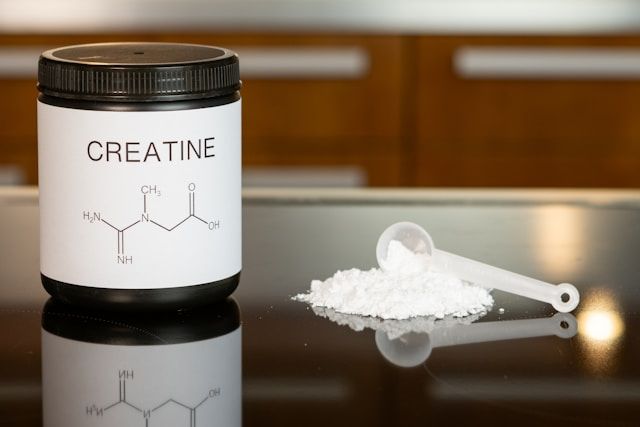.svg)


Creatine has long been a staple in sports nutrition, praised for its ability to enhance strength, power, and muscle growth. But its benefits extend far beyond the gym, making it a worthwhile addition to many people’s daily routines—even if they’ve never touched a barbell.
At its core, creatine is a naturally occurring compound found in our muscles, where it helps produce ATP—the body’s primary energy currency. While most people associate creatine with high-intensity exercise, research shows it can also support:
Not all creatine is created equal. The most researched and widely recommended form is creatine monohydrate, specifically Creapure®, known for its high purity and effectiveness. Other forms, like creatine ethyl ester or buffered creatine, are often marketed as superior but lack sound evidence to show they outperform monohydrate.⁵
❌ Creatine causes kidney damage – A persistent myth. While creatinine levels (a byproduct of creatine metabolism) may increase, multiple studies confirm that creatine supplementation is safe for healthy individuals.⁷
❌ It leads to excessive water weight – Creatine pulls water into muscle cells, not under the skin, meaning any weight gain is lean mass, not bloating.
❌ You need to cycle it – There’s no need for cycling or stopping. Long-term studies show creatine remains effective and safe with continuous use.
❌ Creatine causes hair loss – A common concern due to one small study linking creatine to increased DHT (a hormone associated with hair loss). However, no research has confirmed that creatine directly causes hair loss.⁸
With decades of research confirming its safety and effectiveness, creatine remains one of the best-supported supplements for performance, recovery, and even brain health. Whether you’re looking to improve energy, support cognition, or maintain muscle as you age, it’s a low-cost, high-reward addition to your routine.